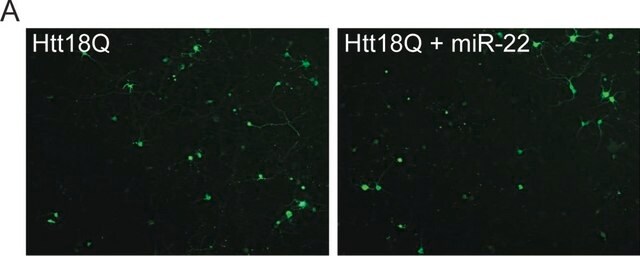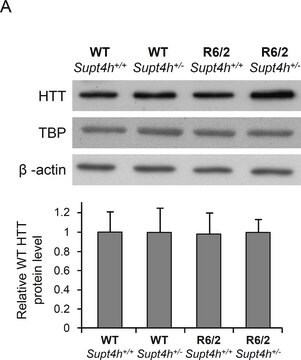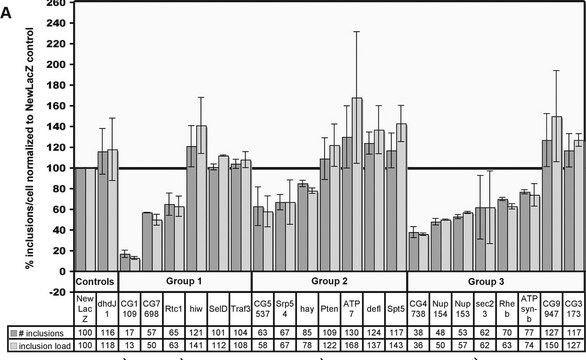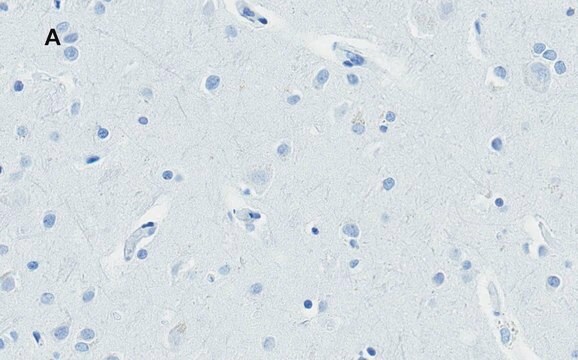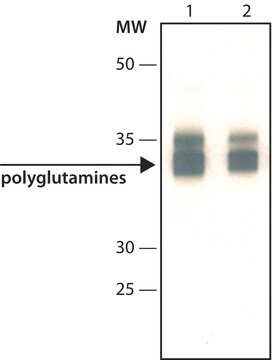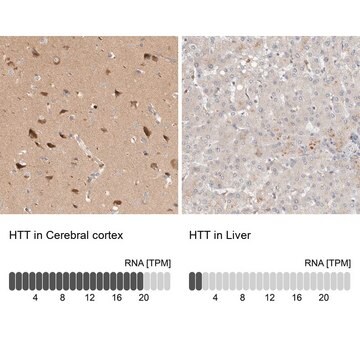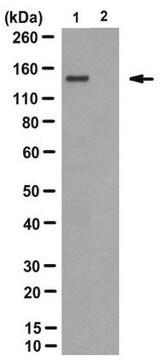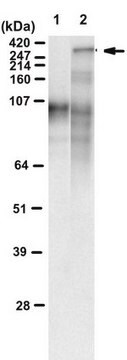H7540
Anti-Huntingtin (N-terminal) antibody produced in rabbit

affinity isolated antibody, buffered aqueous solution
Synonym(e):
Anti-HD, Anti-HTT, Anti-Huntington Disease, Anti-IT15
About This Item
Empfohlene Produkte
Biologische Quelle
rabbit
Konjugat
unconjugated
Antikörperform
affinity isolated antibody
Antikörper-Produkttyp
primary antibodies
Klon
polyclonal
Form
buffered aqueous solution
Mol-Gew.
antigen ~110 kDa
Speziesreaktivität
mouse, human, rat
Erweiterte Validierung
recombinant expression
Learn more about Antibody Enhanced Validation
Konzentration
~1.5 mg/mL
Methode(n)
western blot: 0.5-1.0 μg/mL using a HEK-293T cell lysate expressing a N-terminal fragment of human huntingtin
UniProt-Hinterlegungsnummer
Versandbedingung
dry ice
Lagertemp.
−20°C
Posttranslationale Modifikation Target
unmodified
Angaben zum Gen
human ... HTT(3064)
mouse ... Htt(15194)
rat ... Htt(29424)
Allgemeine Beschreibung
Anwendung
- in magnetic bead-assisted immunopurification
- in western blotting
- in immunofluorescent staining
- in immunoblotting
Biochem./physiol. Wirkung
Physikalische Form
Haftungsausschluss
Sie haben nicht das passende Produkt gefunden?
Probieren Sie unser Produkt-Auswahlhilfe. aus.
Empfehlung
Lagerklassenschlüssel
10 - Combustible liquids
Flammpunkt (°F)
Not applicable
Flammpunkt (°C)
Not applicable
Persönliche Schutzausrüstung
Eyeshields, Gloves, multi-purpose combination respirator cartridge (US)
Analysenzertifikate (COA)
Suchen Sie nach Analysenzertifikate (COA), indem Sie die Lot-/Chargennummer des Produkts eingeben. Lot- und Chargennummern sind auf dem Produktetikett hinter den Wörtern ‘Lot’ oder ‘Batch’ (Lot oder Charge) zu finden.
Besitzen Sie dieses Produkt bereits?
In der Dokumentenbibliothek finden Sie die Dokumentation zu den Produkten, die Sie kürzlich erworben haben.
Unser Team von Wissenschaftlern verfügt über Erfahrung in allen Forschungsbereichen einschließlich Life Science, Materialwissenschaften, chemischer Synthese, Chromatographie, Analytik und vielen mehr..
Setzen Sie sich mit dem technischen Dienst in Verbindung.